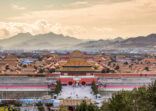There are still opportunities in China fixed income despite the difficulties currently plaguing its beleaguered property sector, particularly if investors align themselves with long-term policy changes, according to Henry Loh, head of Asian credit at abrdn.
China has hardly been flavour of the month lately because of the ongoing difficulties in its property sector. Last month, Country Garden, which historically had been viewed as one of the more stable developers, skipped a coupon payment on its offshore bonds.
The episode at Country Garden is only the latest in a series of problems that have plagued the country’s sector, which accounts for around a quarter of the country’s GDP, ever since China Evergrande Group first ran into difficulties more than two years ago.
But Loh said that abrdn took an overall less bearish view on China and noted that China real estate now accounted for less than 2% of the JP Morgan Asia Credit Index Diversified so investors are missing a step by ignoring China altogether.
“China is always interesting. It’s a baby and bathwater scenario. People see China and they see high yield and they say no thanks, I’m out. Our view on China is not so bearish. Clearly there are problems in the real estate sector. We don’t deny that. But we don’t necessarily believe that this will spill over into a massive contagion,” he said.
“We’ve seen how quickly when policy changes things can pick up again. I think that is really the key in China. Understanding where the policy direction is going and positioning yourself as part of that. You have some huge themes playing out, whether it’s renewable energy, EVs, AI. By no means do we think the wheels are falling off in China.”
On a similar note, Loh is also bullish about the opportunities in Korea despite the difficulties caused by Gangwon Jungdo Development Corp, the developer of the new Legoland Korea theme park east of Seoul, missing a bond payment last year.
Similarly, just a month later, Heungkuk Life Insurance’s decision not to exercise a call option on its perpetual bonds (before later reversing the decision) had spooked markets.
“What’s been very positive is the regulator has been very quick to step in, very quick to address these issues. Korea has historically been a safe haven in the Asia credit space but we think that spreads are more than pricing in some of these concerns,” Loh said.
Overall, Loh favours investment grade over high yield currently, an uncontroversial view as the spreads on offer are widely viewed as insufficient given the recession risk. The ICE BofA US High Yield Index Option-Adjusted Spread was last quoted at 3.85% versus 10.87%, for example, when the coronavirus crisis first hit in March 2020.
Within high yield though, Loh sees pockets of opportunity in subordinated paper, pointing out that he is more comfortable with the counterparty risk for subordinated issuers than he is for non-investment grade senior secured issuers.
“It comes back to that theme of looking for strong issuers. If you want to access something with a bit more pick-up, a bit more yield, but at the same time not want to take as much credit risk or liquidity risk, what’s the better way to do that? A better way to do that is to look at a strong issuer but take that step down in terms of seniority, move into a perpetual bond,” he said.
Regarding duration, which is dividing asset managers currently largely as debate about when, or whether, the US will enter into a recession rumbles on, Loh favours duration, albeit his view is slightly nuanced.
“We potentially have been slightly early in that trade but we’ve not maxed out on that duration risk. We have been adding incrementally as and when rates have been going up. Clearly there’s still a lot of uncertainty, volatility in that timing and how and when that plays out. We’re not betting the house on that view,” he said.

















